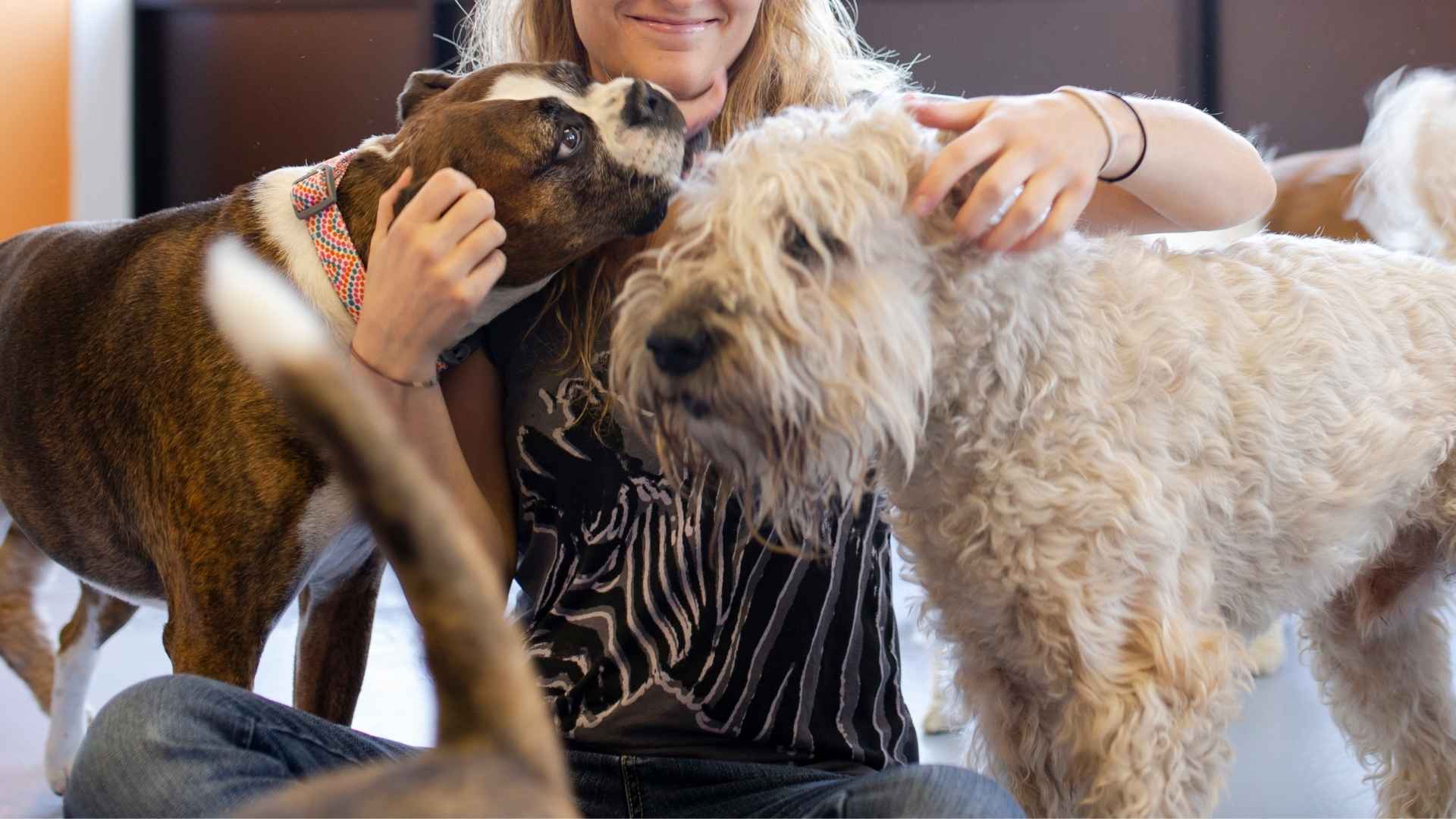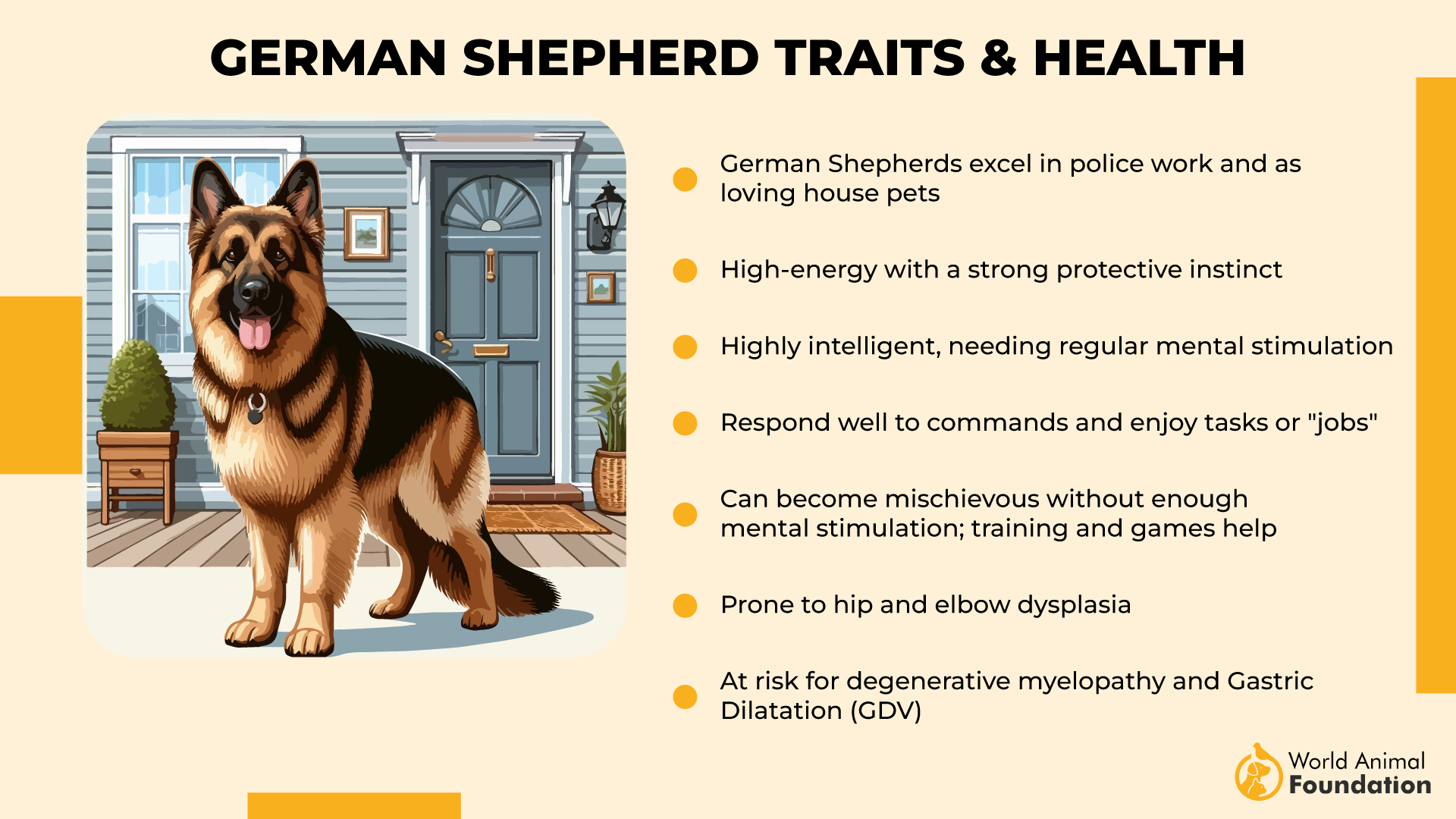Epilepsy in dogs can be a challenging condition for both pets and their owners, requiring special care and understanding. Selecting the right breed can make managing epilepsy more manageable due to temperament, size, or inherent characteristics. Our guide to the seven best dog breeds for epilepsy explores options suited for companionship and support in the face of health challenges. Discover breeds known for their calm nature and resilience, making them excellent choices for households dealing with epilepsy. Embark on a journey to find the perfect furry friend who will bring joy and stability into your life while managing this neurological disorder.
Living with epilepsy can be challenging, bringing uncertainty and fear into everyday life. However, for many individuals, a service dog can provide much-needed support, offering safety, companionship, and a sense of control. These remarkable dogs are specially trained to detect seizures before they happen, assist during episodes, and provide both emotional and physical help. They can also offer comfort and act as a constant source of support, helping to reduce anxiety and isolation.
For those navigating life with epilepsy, a service dog isn’t just a pet—it’s a partner in managing the condition. The right service dog can enhance confidence, independence, and well-being. In this article, we’ll dive into the best service dog breeds for epilepsy, highlighting their unique abilities, gentle temperaments, and the vital role they play in improving quality of life.
Whether you’re considering a service dog for yourself or a loved one, this guide will help you find the perfect fit.
Best Dogs for Epilepsy
1. German Shepherd
German Shepherds are widely recognized for their intelligence, loyalty, and versatility. Known for their exceptional roles in police and military settings, these dogs have a natural ability to learn and perform complex tasks, making them ideal service animals. They are not only fearless protectors but also deeply empathetic companions, traits that make them invaluable for individuals living with epilepsy.
One of their most remarkable abilities lies in their keen sense of smell, which enables them to detect subtle changes in a person’s body chemistry. This skill allows German Shepherds to anticipate seizures, often providing an alert before the episode occurs. Additionally, their strength and agility make them capable of assisting their handlers during or after a seizure, ensuring safety and stability in critical moments.
Key Traits:
-
Highly Intelligent: Quick learners, making them ideal for complex training.
-
Protective Nature: Instinctively safeguard their handlers.
-
Strong Bond: Loyal and reliable, they form deep connections with their owners.
While their energy levels generally require regular exercise and control, these dogs are adaptable to various living environments, provided they receive adequate mental and physical stimulation.
2. Poodle
Poodles, available in standard, miniature, and toy sizes, are celebrated for their intelligence and adaptability. Their hypoallergenic coats make them an excellent choice for individuals with allergies. These dogs are highly versatile, excelling in various training tasks related to seizure response and emotional support. Their eagerness to please, coupled with their sharp intellect, ensures they are quick learners and can master complex service tasks.
In addition to their aptitude for learning, Poodles are well-suited for providing anxiety relief. Their calm and affectionate nature allows them to detect and respond to their owner’s emotional states, making them effective companions for those managing stress or anxiety alongside epilepsy. Whether creating a safe environment during a seizure or offering comforting presence during recovery, Poodles bring both functionality and emotional support to their roles.
Key Traits:
-
Highly Trainable: Quick to learn commands and tasks.
-
Friendly and Social: Great with families and children.
-
Adaptable: Thrive in both large homes and smaller apartments.
Their smaller sizes make them suitable for individuals seeking a portable and manageable service animal.
3. Bernese Mountain Dog
Bernese Mountain Dogs are known for their gentle demeanor and calm personality. While they may not be as commonly used as seizure-alert dogs, their size and strength make them excellent for providing physical support during or after seizures. These dogs can help steady a person after an episode or assist with mobility during recovery, offering a vital sense of stability and safety.
Their empathetic and intuitive nature makes them ideal for forming strong bonds with their handlers. Bernese Mountain Dogs thrive in environments where they can provide not only physical assistance but also emotional reassurance. Their affectionate and patient temperament ensures they are a comforting presence during challenging moments, making them invaluable companions for individuals living with epilepsy.
Key Traits:
-
Calm and Patient: Ideal for those needing steady and reliable support.
-
Affectionate Nature: Provide emotional comfort and companionship.
-
Strong Build: Can assist with mobility tasks.
Their friendly behavior and gentle disposition makes them a favorite pet among families, and their ability to respond appropriately to their handler’s needs ensures they’re dependable in critical moments.
4. Great Dane:
Great Danes, known for their impressive size and gentle temperament, make excellent epilepsy service dogs. Their height and strength allow them to assist individuals who may experience falls during seizures, providing stability and helping them regain their footing. These qualities are particularly beneficial for people who require physical support during or after an episode.
Despite their imposing stature, Great Danes are known for their calm and affectionate personalities. They form deep bonds with their handlers and remain alert to their needs. This combination of strength and sensitivity makes them invaluable companions for those navigating life with epilepsy.
Key Traits:
-
Supportive Physique: Perfect for physical support and stability.
-
Affectionate Personality: Form strong emotional bonds with their owners.
-
Alert and Aware: Highly attuned to their handler’s needs.
Due to their size, Great Danes require ample space and a steady diet of food to maintain their health, but their unparalleled companionship makes the effort worthwhile.
5. American Staffordshire Terrier:
American Staffordshire Terriers are often underestimated as service dogs, but their brains, strength, and unwavering loyalty make them exceptional candidates for seizure response work. They are highly attuned to their handlers’ needs and can provide both emotional reassurance and practical assistance during seizures.
These dogs are also incredibly resilient and courageous, remaining calm and effective in high-pressure situations. Their energetic nature means they require regular physical and mental stimulation, but this also ensures they are always alert and ready to respond when needed. For individuals seeking a devoted and capable service dog, the American Staffordshire Terrier is an excellent choice.
Key Traits:
-
Loyal and Devoted: Fiercely protective of their families.
-
Courageous: Remain calm and effective in emergencies.
-
Energetic: Thrive with regular exercise and mental stimulation.
Their affectionate nature and unwavering loyalty ensure they are both a practical helper of parents and a beloved family member.
6. Pomeranian:
Pomeranians may be small in size, but their intelligence and alertness make them surprisingly effective as seizure alert dogs. These little companions are highly attuned to changes in their handlers’ behavior or body chemistry, often providing early warnings of an impending seizure.
Their compact size makes them ideal for individuals who need a service dog that is easy to transport and manage in small living spaces. Despite their diminutive stature, Pomeranians are affectionate and dedicated, providing both emotional support and practical assistance. Their lively and spirited personalities make them a joy to have as a constant companion.
Key Traits:
-
Intelligent and Alert: Quick to sense changes in their handler’s condition.
-
Compact Size: Perfect for travel and small living spaces.
-
Affectionate: Provide consistent emotional support.
While their age and their fluffy coats require regular grooming, their spirited personality and dedication to their owners make them a delightful and practical pet choice.
7. Retrievers
Golden Retrievers and Labrador Retrievers are among the most popular breeds for service work, including epilepsy support. These dogs are known for their intelligence, trainability, and gentle nature, which make them particularly well-suited for identifying and reacting to seizures.
Retrievers are highly versatile and can be trained to perform a variety of tasks, such as alerting their owners before a seizure, fetching medication, or providing physical comfort during recovery. Their friendly and social nature ensures they integrate seamlessly into house, offering not just service but also unconditional companionship. Their reliability and adaptability have made them one of the most sought-after breeds for service dog roles.
Key Traits:
-
Highly Trainable: Excel in learning complex tasks.
-
Gentle and Friendly: Perfect for families and children.
-
Reliable: Consistently alert and responsive in emergencies.
Golden Retrievers and Labrador Retrievers excel in providing both emotional and physical support for individuals with epilepsy. Their intelligence and trainability make them highly effective at detecting seizures and performing tasks such as fetching medication or providing comfort. With their friendly, loyal nature, these breeds offer not only assistance but also a deep bond of companionship, making them ideal partners for those in need of epilepsy support.
Conclusion
In conclusion, choosing a seizure response dog is a significant decision that requires careful consideration and planning. Canine partners trained for epilepsy support offer invaluable protection, from alerting people to impending seizures to assisting with specific tasks during an episode.
However, dog training for such tasks is not simple—it requires skilled trainers and ample resources, often taking up to two years to complete. Many people choose to work with reputable organizations or trainers, such as those recommended by the American Kennel Club, to ensure their canine partner is properly trained.
At a certain age, these dogs are ready to take on their critical role, but the responsibility of care doesn’t end with training. Owners must be ready to pay for the costs involved, which can include training, medical expenses, and ongoing care.
With the right commitment, a seizure dog can protect and provide support, enhancing independence for those with epilepsy.
In conclusion, selecting a dog breed well-suited for individuals or families managing epilepsy involves considering traits such as temperament, intelligence, and trainability. Breeds like Labradors and Golden Retrievers are often recommended due to their gentle nature and ability to be trained as service dogs. Poodles, known for their intelligence and hypoallergenic coats, make excellent companions as well. Additionally, mixed breeds often surprise with unique combinations of desirable traits. Ultimately, the best breed will align with the specific lifestyle and preferences of the person with epilepsy, ensuring a supportive and harmonious companionship. Always consult with professionals when making such an important choice.










